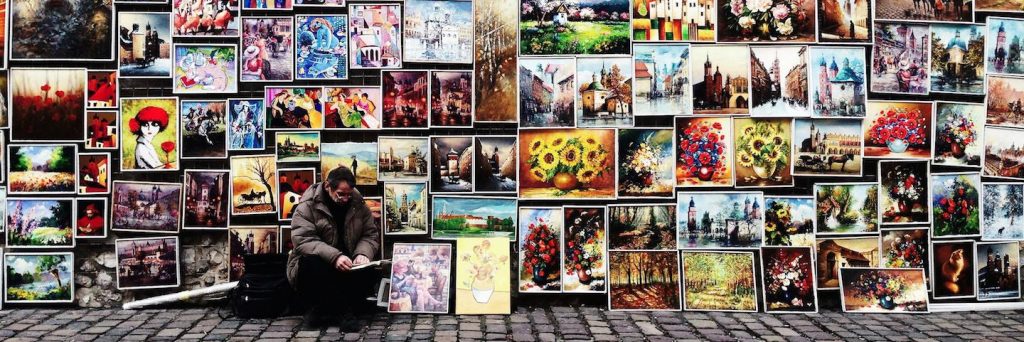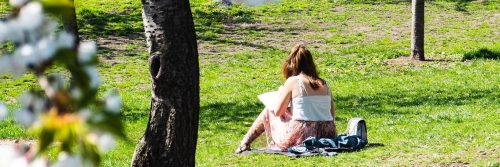It’s a balmy and seemingly endless afternoon and I’m sat in the small piano rehearsal room at the local music school. I stare blankly at all my anxious scribbles on the sheet music in front of me, trying to look engaged. My hands reset and I play my scales in a kind of rhythmic disinterest. The weight of the past school day pulls at my shoulders, the paint and pencil battle scars staining the edges of my wrinkled sleeves.
This is not what I had imagined.
I had imagined millions of roaring fans, my hands dancing around on the keys of Grand Yamaha on stage, the raw energy of the music flowing through me. I had imagined interviews on Ellen, platinum albums and a life of luxury and adoration. But here I was, my hands playing the same eight notes, watching as the clock feebly ticked towards 4:30.
All those hours spent practising my autograph seemed fruitless.
I remember the early days, bopping in my bonds onesie to 104.9 on our scratchy hand-held radio. I remember my cousin guiding my hands delicately on the keys of his brand-new keyboard as I defiantly smashed the keys and boogied to my own tune.
This is where my love for music started. I got my first keyboard when I was 8 and perfected an extensive number of one-handed nursery rhymes. I’d play around with the trumpet noises and the bongo beats and take a dramatic bow to an empty living room after my “alternative” performances.
Over the years, it became my way of life. I wasn’t passionate about music in the obvious and sometimes brooding way, but I really lived it. I would furiously flick through radio stations in the car to look for my next musical inspiration. I would incessantly harmonise and improvise over pop songs and had pages upon pages of corny lyrics and untitled songs.
It was the way I read my reality, the eyes through which I saw the world.
Although it began with intense love, as the pieces got longer and the exams become more rigorous, my love quickly turned to frustration. I dreaded those weekly lessons; the smell of the musty carpet and the other girls in my class who effortlessly danced around the keys without a care. Music became about perfection and imitation and my passion became a point of competition.
I didn’t feel like I could call myself a passionate musician.
Many of us can get caught in this mindset, seeing passion as an accessory. Something that makes you stand out or makes you special. We compare our passion with others, we feel envious, we weave intricate scenarios in our head of how great our passion will make us look and how it will change how others see us.
But just like any accessory, there is always someone with one more eye-catching than you, one more idealistic than you and so we begin to feel like our passion is less valuable or less worthy than others.
I was more focused on the likes, the applause, the recognition and the way the music portrayed me rather than how I portrayed it. I soon realised how much my idea of passion had been skewed.
Interestingly, I researched the etymological roots of the word ‘passion’. It is derived from the Latin word patior which meant ‘to suffer at the hands of an external force’.
As opposed to seeing passion as a thing to possess, I began to see it as an ability to have.
Passion is, at its core—not for the faint of heart or those who lack patience—which is not the ability to wait, but the ability to suffer.
~ Vivek Haldar
When you find yourself envisioning a particular destination; fame, wealth, recognition; you soon realise how contradictory this is to passion as a concept. True passion is found in the silence, the times where no-one is watching and no-one is clapping. Passion isn’t found, as they say, ‘in the outcome’, it is found ‘in the process’.
When we think of a passionate musician, we see a stage; when we think of a passionate writer, we see a bestseller. We seem to only take passion at its surface value, rather than seeing it as that person’s unique and inimitable ability to suffer and persist through uncertainty; not for the outcome of fame or wealth, but merely for the sake of the suffering itself.
Now feeling inspired I went further into searching the root of the word ‘suffer’ which meant to ‘allow to continue, to bear or to carry’. It was not an inherently negative thing, ‘suffering’, as we like to think of it.
Passion, instead of being a forced and relentless pursuit, is something which we cannot create, but merely carry. It’s about disarming yourself and letting yourself be consumed by action.
If you think about famous pieces of art; although each may use a different medium, different brush strokes or paint different scenes, each one has its own reverence and own meaning. Its very existence is constantly being multiplied and reimagined by each pair of eyes. Thus, Art cannot be singular as it only truly exists, not on the canvas, but in the collective of minds who have experienced it.
It made me realize then, how illogical it was to compare and compete, as each one of us would refract and reflect passion differently. We wouldn’t put the Mona Lisa and The Starry Night side by side and determine one’s superiority over the other.
It is inherently contradictory to the notion of art itself.
That’s exactly what passion is. Each person’s piece of art- their ability to carry and suffer for an idea or a skill and uniquely express their relationship with it. It’s meaning is not derived from how it is in our own minds, but in the way, it has influenced and touched the people around us.
I realize now that it’s not about being the most passionate, the most successful or the most revered- it’s simply about living, your own, best life. In this way, you can only really be compared or be competitive, with yourself.
Passion isn’t something to seek, rather something to see within yourself.
There is no end. There is no beginning. There is only the infinite passion of life. ~ Feferico Fellini, Italian Director
You may also like to check out Rhea Kohli’s Lonely, Not Alone.








Lovely piece of writing indeed, Rhea!!
Fantastic as always Rhea!